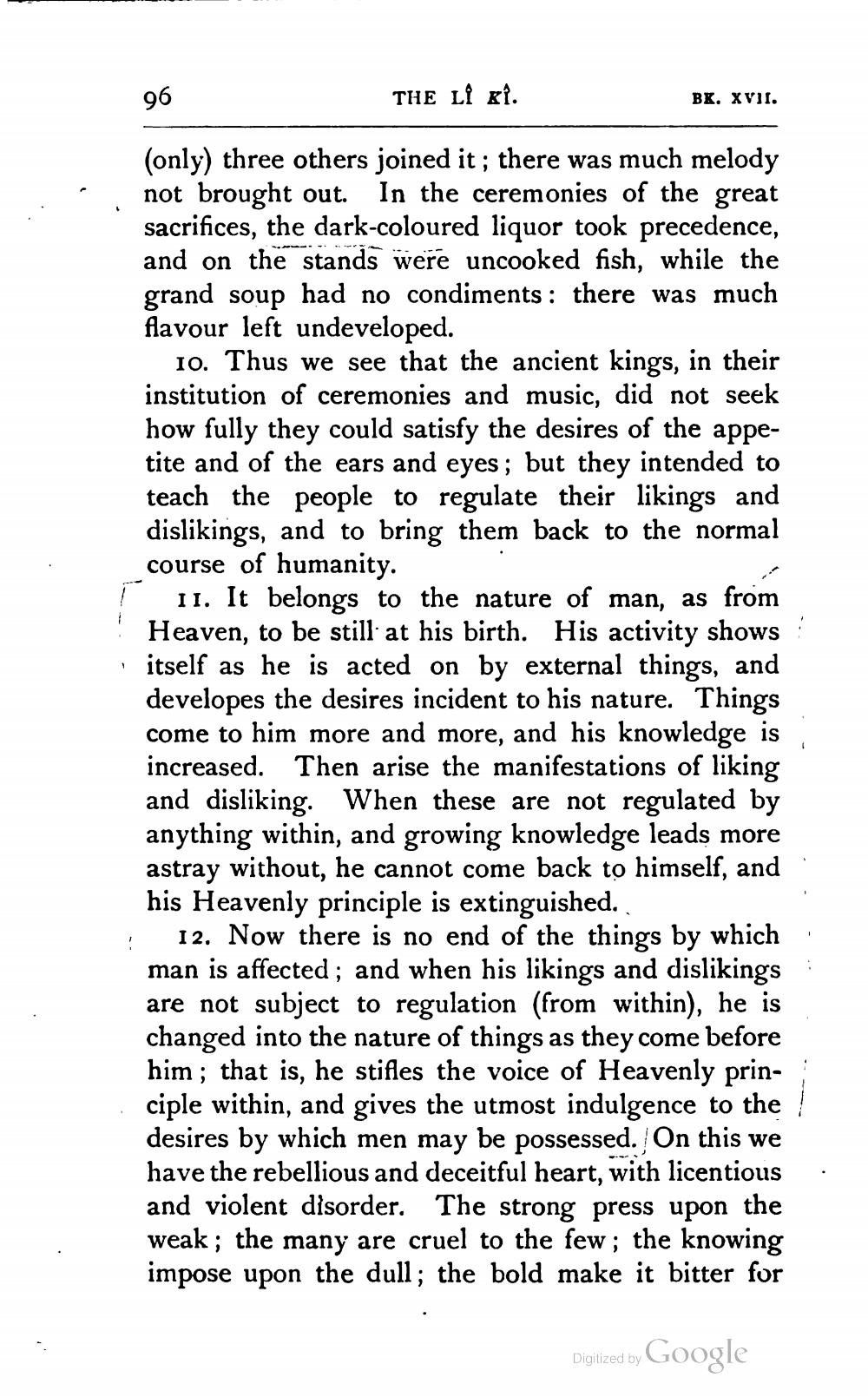________________
96
THE LÎ kl.
BK. XVII.
(only) three others joined it; there was much melody not brought out. In the ceremonies of the great sacrifices, the dark-coloured liquor took precedence, and on the stands were uncooked fish, while the grand soup had no condiments: there was much flavour left undeveloped.
10. Thus we see that the ancient kings, in their institution of ceremonies and music, did not seek how fully they could satisfy the desires of the appetite and of the ears and eyes; but they intended to teach the people to regulate their likings and dislikings, and to bring them back to the normal course of humanity.
11. It belongs to the nature of man, as from Heaven, to be still at his birth. His activity shows itself as he is acted on by external things, and developes the desires incident to his nature. Things come to him more and more, and his knowledge is increased. Then arise the manifestations of liking and disliking. When these are not regulated by anything within, and growing knowledge leads more astray without, he cannot come back to himself, and his Heavenly principle is extinguished.
12. Now there is no end of the things by which man is affected; and when his likings and dislikings are not subject to regulation (from within), he is changed into the nature of things as they come before him ; that is, he stifles the voice of Heavenly principle within, and gives the utmost indulgence to the desires by which men may be possessed. On this we have the rebellious and deceitful heart, with licentious and violent disorder. The strong press upon the weak; the many are cruel to the few; the knowing impose upon the dull; the bold make it bitter for
Digitized by Google




